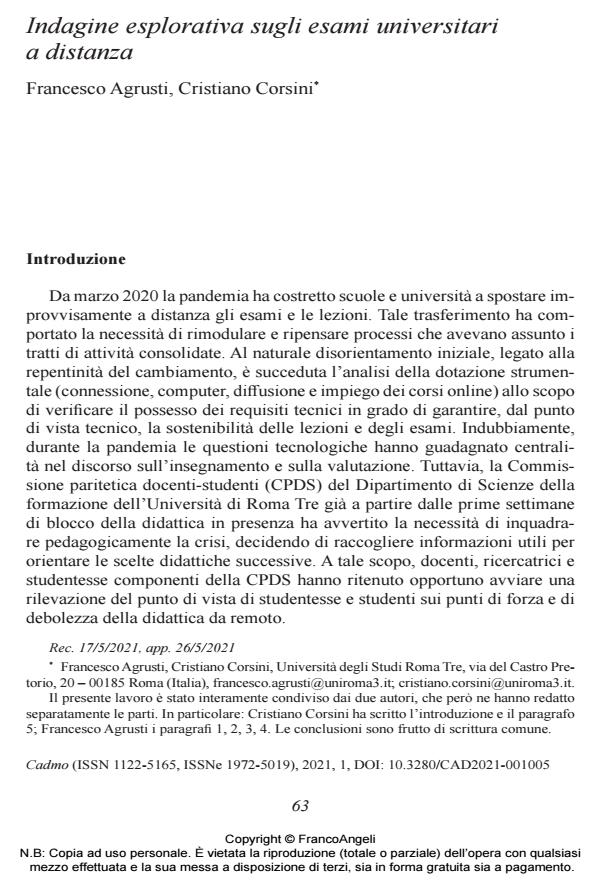An exploratory survey on higher education exams in a distance education environment
Journal title CADMO
Author/s Francesco Agrusti, Cristiano Corsini
Publishing Year 2021 Issue 2021/1
Language Italian Pages 18 P. 63-80 File size 480 KB
DOI 10.3280/CAD2021-001005
DOI is like a bar code for intellectual property: to have more infomation
click here
Below, you can see the article first page
If you want to buy this article in PDF format, you can do it, following the instructions to buy download credits

FrancoAngeli is member of Publishers International Linking Association, Inc (PILA), a not-for-profit association which run the CrossRef service enabling links to and from online scholarly content.
Since March 2020, the pandemic has forced schools and universities to suddenly move examinations and lectures to remote locations. In order to generate useful knowledge to inform practices in a situation character¬ised by the sudden transfer to remote locations of activities and processes that until a few days before took place in presence, the Teachers-Students Commission of the Department of Education Sciences of the University of Roma Tre partially revised the traditional approach, introducing two questionnaires: on the one hand, the aim was to detect the students’ beliefs about distance teaching (DaD) and its delivery methods, and on the other hand, the aim was to detect the views and opinions about the conduct of distance examinations (EaD). In this paper we consider the beliefs and opinions of 250 students regard¬ing the EaD, trying to understand how the offer of profit exams has been used and evaluated by the students enrolled in the various degree courses.
Keywords: Distance education, assessment, exam proctoring, higher education, student perceptions
Francesco Agrusti, Cristiano Corsini, Indagine esplorativa sugli esami universitari a distanza in "CADMO" 1/2021, pp 63-80, DOI: 10.3280/CAD2021-001005